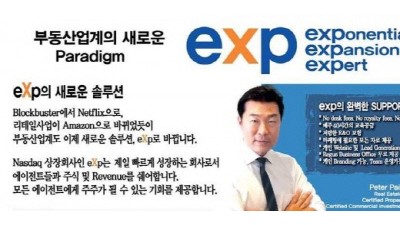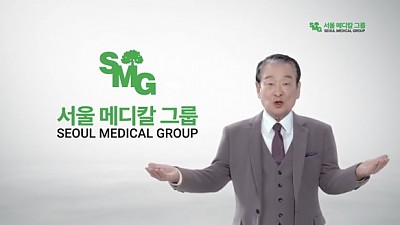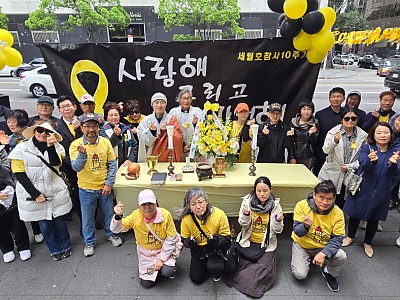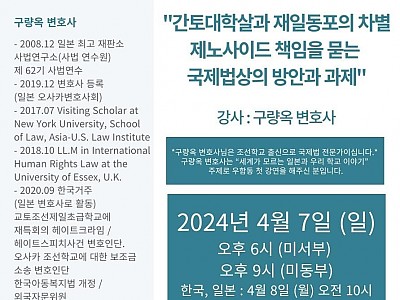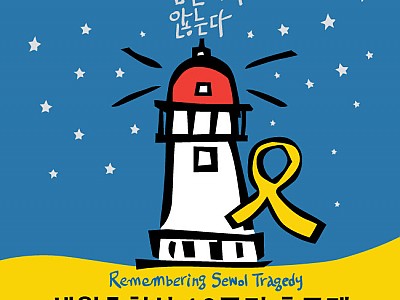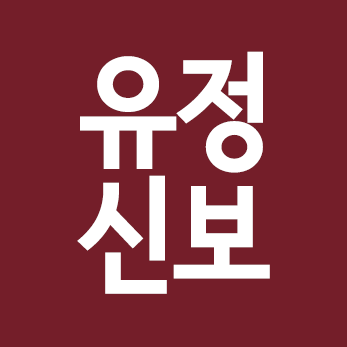
|
THE YOOJUNG TIMESyoojungtimes.com |

글로벌 민주주의 분석차원강의노트: 사무엘김 콜럼비아 대학교 국제정치학 교수 |
Level of Analysis Approaches to Global Democracy and World Order
글로벌 민주주의 분석 차원
- Source “level of analysis”: Samuel Kim (Prof. Columbia University)
사무엘김 (미국 콜럼비아 대학교 국제정치학 교수)
강의정리: 심흥근 기자
I. Realism 현실주의
a. International System: System-maintaining 국가간의 구조: 현 구조의 유지
b. Key actors: States 핵심 행위자: 각 국가들
c. Deep structure of world order: Westphalian order 세계흐름의 저변구조: 베스트팔렌 형 정언구조
d. Who governs? Hegemonic states 통치의 주체? 패권 국가들
e. Vision of world order: Hierarchal state-centric 국제흐름의 시각: 최강국 중심의 순차적 우열 배열
f. Ethic of global governance: Power politics 전지구적 통치의 당위성: 힘 (군사력, 경제력, 자원) 의 정치
g. Democratic heritage: Representative (protective) democracy 민주적 전통: 대의민주주의
h. Globalization-cause and effect: No globalization except financial globalization 세계화 -원인 과 결과의 인식: 금융권의 세계화는 예외적으로 수용
i. Main proponents: Realists in academic and policy communities 주요 연구주체들: 학제적 교류- 현실주의 학자들과 현실주의적 정책기관들
II. Liberal and Institutionalism ‘자유주의’ 와 ‘제도주의’
a. International System: System-reforming 국제구조: 현 구조- 개선 개혁
b. Key actors: States and IGOs and NGOs 핵심 행위자들: 각 국가들, 공식 정부외교기관, 비공식 정부외교기관,
c. Deep structure of World order: Westphalian and emerging post-Westphalian order 세계구조의 정언적 저변체제: 고전적 ‘베스트팔렌 구조’와 ‘후기-베스트팔렌’ 정언체제
d. Who governs? States, IGO, MNCs, NGOs 통치의 주체? 각 국가들, 공식외교기관,다국적기업들,비공식기관들
e. Vision of World: Polyarchy 세계를 보는 시각: ‘폴리야키’
f. Ethics of global governance: Consensus politics via reformed IGOs; enhancing the transparency of global governance 전지구적 통치의 당위성: 개혁된 공식외교기관을 통한 동의의 정치, 지구적 통치의 투명성 획득 지향
g. Democratic heritage: Liberal Democracy 민주적 전통: 자유주의적 민주주의
h. Globalization: Multi-causal process-generates interdependence and ‘zones of peace’ 세계화의 원인과 결과를 보는 시각: 다차원, 다원적 진행으로 인한 독립과 평화 영역의 증진
i. Main proponents: The Commission on Global Governance; Keohane and Nye 주요 학술: 전지구적 통치 위원회 : 정치경제학자 ‘코헤인’, ‘죠셉 나이’
III. Class and Socialist Radicalism 계급적 급진 사회주의
a. International System: System-transforming 국제구조: 현 구조 급진적 변혁
b. Key actors: Transnational capital, States, MNCs, global capitalist agencies 핵심 행위자들: 국가를 넘나드는 자본, 국가들, 다국적기업체들, 국제자본주의의 대리자들
c. Deep structure of world order: Global capitalism 국제주의 저변구조: 국제자본주의
d. Who governs?: Transnational capitalist class, elites through states and MNCs 통치의 주체?: 국가를 넘나드는 자본주의 계급, 각 국가의 엘리트 지배층 그리고 다국적기업들
e. Vision of World order: Rule of global capital 세계흐름의 시각: 전지구적 자본의 현실적 지배
f. Ethic of global governance: Popular governance from below 지구적 통치의 당위성: 아래로 부터의 대중적 통치
g. Democratic heritage: Direct democracy 민주적 전통: 직접 민주주의
h. Globalization: Economical driven-subject to contradictions 세계화: 경제력이 이끄는 동력은 모순을 가져옴
i. Main proponents: Cox (1996) Boswell and Chase-Dunn (2000) 주요담론자들: 사회주의 사상가들 ‘콕스’, ‘보스웰’, ‘체이스 듄’
IV. Kantian Cosmopolitanism 칸트의 ‘정언명령’적 세계시민주의, “코스모폴리타니즘”
a. International System: System-transforming 국제국조: 현 구조 개혁
b. Key actors: States, IGOs, NGOs, MNCs, critical social movements 핵심 행위자들: 각 국가들, 공식-비공식 외교 기관들, 다국적기업체들, 각국가들의 비판적사회운동기관들
c. Deep structure of world order: Post-Westphalian order 국제정치 저변구조: 후기-베스트팔렌 구조의 지향 (각 국가들의 독립된 주체성과 문화적 역량을 북돋아 측면 지원하여 다원적이며 포괄적 차원의 전지구적인 발전으로 지향
d. Who governs?: States, peoples, IGOs, NGOs, MNCs, Epistemic-communities 핵심 통치주체?: 각 국가들, 각 국민들, 공식-비공식 외교체널 기관들, 다국적기업들, 인식공동체들 (각국 대학 학자들의 전지구적 연대와 학제적 인식 공동체의 활성화)
e. Vision of World order: Cosmopolitan-state, peoples (multitude) reformed IGOs 국제흐름의 시각: 각 국가들의 칸트주의적 ‘세계시민주의’로 승화, 각 국민들 (대중), 개혁된 각국의 공식적 외교 기관 체널들
f. Ethic of global governance: Cosmopolitan democratic governance 지구적 통치의 향방: ‘칸트주의적’ [세계시민 민주주의] 통치체제 지향
g. Democratic heritage: Liberal democracy; direct democracy; participatory democracy 민주적 전통: 자유 민주주의, 직접민주주의, 참여 민주주의
h. Globalization: Multi-causal process with transformative potential 세계화: 다차원적 세계화의 진행으로 인한 ‘긍정’적 측면으로 궤도적 전환이 이루어질 잠재성은 내재
i. Main proponents: Held (1995) and McGrew (1997) 주요담론자: 정치학자: ‘데이빗 헬드’, ‘맥그류’.
Source “level of analysis”: Samuel Kim (Prof. Columbia University)
자료인용출처: 사무엘김 (미국 콜럼비아 대학교 국제정치학 교수)
참고).
Samuel Kim (Prof. Columbia University); Senior Research Scholar
Email: ssk12@columbia.edu
Korean foreign relations and politics; Chinese foreign policy
Professor Kim previously taught at Foreign Affairs Institute, Beijing, China (1985– 1986), Princeton University (1986–1993), and Columbia University (1993–2006) and is editor-in-chief of the Asia in World Politics series of Rowman & Littlefield Publishers. He is the author/editor of 23 books on East Asian international relations, Chinese and Korean foreign relations, and world order studies, including China, the United Nations, and World Order (Princeton University Press, 1979), The War System: An Interdisciplinary Approach (editor, Westview Press, 1980), The Quest for a Just World Order (Westview Press,1984), China and the World (editor, Westview Press, 1984, 1989, 1994, 1998), East Asia and Globalization (editor, Rowman & Littlefield, 2000), Korea’s Democratization (editor, Cambridge University Press, 2003), The International Relations of Northeast Asia (editor, Rowman & Littlefield, 2004), The Two Koreas and the Great Powers (Cambridge University Press, 2006); and North Korean Foreign Relations in the Post–Cold War World (Strategic Studies Institute, 2007). He has published more than 200 articles in edited volumes and leading international relations journals, including American Journal of International Law, The China Quarterly, Asian Survey, International Interactions, International Organization, International Journal, Journal of Peace Research, World Politics, and World Policy Journal.
Dr. Kim received his PhD in political science from Columbia University in 1966.
글로벌 민주주의 분석 차원
- Source “level of analysis”: Samuel Kim (Prof. Columbia University)
사무엘김 (미국 콜럼비아 대학교 국제정치학 교수)
강의정리: 심흥근 기자
I. Realism 현실주의
a. International System: System-maintaining 국가간의 구조: 현 구조의 유지
b. Key actors: States 핵심 행위자: 각 국가들
c. Deep structure of world order: Westphalian order 세계흐름의 저변구조: 베스트팔렌 형 정언구조
d. Who governs? Hegemonic states 통치의 주체? 패권 국가들
e. Vision of world order: Hierarchal state-centric 국제흐름의 시각: 최강국 중심의 순차적 우열 배열
f. Ethic of global governance: Power politics 전지구적 통치의 당위성: 힘 (군사력, 경제력, 자원) 의 정치
g. Democratic heritage: Representative (protective) democracy 민주적 전통: 대의민주주의
h. Globalization-cause and effect: No globalization except financial globalization 세계화 -원인 과 결과의 인식: 금융권의 세계화는 예외적으로 수용
i. Main proponents: Realists in academic and policy communities 주요 연구주체들: 학제적 교류- 현실주의 학자들과 현실주의적 정책기관들
II. Liberal and Institutionalism ‘자유주의’ 와 ‘제도주의’
a. International System: System-reforming 국제구조: 현 구조- 개선 개혁
b. Key actors: States and IGOs and NGOs 핵심 행위자들: 각 국가들, 공식 정부외교기관, 비공식 정부외교기관,
c. Deep structure of World order: Westphalian and emerging post-Westphalian order 세계구조의 정언적 저변체제: 고전적 ‘베스트팔렌 구조’와 ‘후기-베스트팔렌’ 정언체제
d. Who governs? States, IGO, MNCs, NGOs 통치의 주체? 각 국가들, 공식외교기관,다국적기업들,비공식기관들
e. Vision of World: Polyarchy 세계를 보는 시각: ‘폴리야키’
f. Ethics of global governance: Consensus politics via reformed IGOs; enhancing the transparency of global governance 전지구적 통치의 당위성: 개혁된 공식외교기관을 통한 동의의 정치, 지구적 통치의 투명성 획득 지향
g. Democratic heritage: Liberal Democracy 민주적 전통: 자유주의적 민주주의
h. Globalization: Multi-causal process-generates interdependence and ‘zones of peace’ 세계화의 원인과 결과를 보는 시각: 다차원, 다원적 진행으로 인한 독립과 평화 영역의 증진
i. Main proponents: The Commission on Global Governance; Keohane and Nye 주요 학술: 전지구적 통치 위원회 : 정치경제학자 ‘코헤인’, ‘죠셉 나이’
III. Class and Socialist Radicalism 계급적 급진 사회주의
a. International System: System-transforming 국제구조: 현 구조 급진적 변혁
b. Key actors: Transnational capital, States, MNCs, global capitalist agencies 핵심 행위자들: 국가를 넘나드는 자본, 국가들, 다국적기업체들, 국제자본주의의 대리자들
c. Deep structure of world order: Global capitalism 국제주의 저변구조: 국제자본주의
d. Who governs?: Transnational capitalist class, elites through states and MNCs 통치의 주체?: 국가를 넘나드는 자본주의 계급, 각 국가의 엘리트 지배층 그리고 다국적기업들
e. Vision of World order: Rule of global capital 세계흐름의 시각: 전지구적 자본의 현실적 지배
f. Ethic of global governance: Popular governance from below 지구적 통치의 당위성: 아래로 부터의 대중적 통치
g. Democratic heritage: Direct democracy 민주적 전통: 직접 민주주의
h. Globalization: Economical driven-subject to contradictions 세계화: 경제력이 이끄는 동력은 모순을 가져옴
i. Main proponents: Cox (1996) Boswell and Chase-Dunn (2000) 주요담론자들: 사회주의 사상가들 ‘콕스’, ‘보스웰’, ‘체이스 듄’
IV. Kantian Cosmopolitanism 칸트의 ‘정언명령’적 세계시민주의, “코스모폴리타니즘”
a. International System: System-transforming 국제국조: 현 구조 개혁
b. Key actors: States, IGOs, NGOs, MNCs, critical social movements 핵심 행위자들: 각 국가들, 공식-비공식 외교 기관들, 다국적기업체들, 각국가들의 비판적사회운동기관들
c. Deep structure of world order: Post-Westphalian order 국제정치 저변구조: 후기-베스트팔렌 구조의 지향 (각 국가들의 독립된 주체성과 문화적 역량을 북돋아 측면 지원하여 다원적이며 포괄적 차원의 전지구적인 발전으로 지향
d. Who governs?: States, peoples, IGOs, NGOs, MNCs, Epistemic-communities 핵심 통치주체?: 각 국가들, 각 국민들, 공식-비공식 외교체널 기관들, 다국적기업들, 인식공동체들 (각국 대학 학자들의 전지구적 연대와 학제적 인식 공동체의 활성화)
e. Vision of World order: Cosmopolitan-state, peoples (multitude) reformed IGOs 국제흐름의 시각: 각 국가들의 칸트주의적 ‘세계시민주의’로 승화, 각 국민들 (대중), 개혁된 각국의 공식적 외교 기관 체널들
f. Ethic of global governance: Cosmopolitan democratic governance 지구적 통치의 향방: ‘칸트주의적’ [세계시민 민주주의] 통치체제 지향
g. Democratic heritage: Liberal democracy; direct democracy; participatory democracy 민주적 전통: 자유 민주주의, 직접민주주의, 참여 민주주의
h. Globalization: Multi-causal process with transformative potential 세계화: 다차원적 세계화의 진행으로 인한 ‘긍정’적 측면으로 궤도적 전환이 이루어질 잠재성은 내재
i. Main proponents: Held (1995) and McGrew (1997) 주요담론자: 정치학자: ‘데이빗 헬드’, ‘맥그류’.
Source “level of analysis”: Samuel Kim (Prof. Columbia University)
자료인용출처: 사무엘김 (미국 콜럼비아 대학교 국제정치학 교수)
참고).
Samuel Kim (Prof. Columbia University); Senior Research Scholar
Email: ssk12@columbia.edu
Korean foreign relations and politics; Chinese foreign policy
Professor Kim previously taught at Foreign Affairs Institute, Beijing, China (1985– 1986), Princeton University (1986–1993), and Columbia University (1993–2006) and is editor-in-chief of the Asia in World Politics series of Rowman & Littlefield Publishers. He is the author/editor of 23 books on East Asian international relations, Chinese and Korean foreign relations, and world order studies, including China, the United Nations, and World Order (Princeton University Press, 1979), The War System: An Interdisciplinary Approach (editor, Westview Press, 1980), The Quest for a Just World Order (Westview Press,1984), China and the World (editor, Westview Press, 1984, 1989, 1994, 1998), East Asia and Globalization (editor, Rowman & Littlefield, 2000), Korea’s Democratization (editor, Cambridge University Press, 2003), The International Relations of Northeast Asia (editor, Rowman & Littlefield, 2004), The Two Koreas and the Great Powers (Cambridge University Press, 2006); and North Korean Foreign Relations in the Post–Cold War World (Strategic Studies Institute, 2007). He has published more than 200 articles in edited volumes and leading international relations journals, including American Journal of International Law, The China Quarterly, Asian Survey, International Interactions, International Organization, International Journal, Journal of Peace Research, World Politics, and World Policy Journal.
Dr. Kim received his PhD in political science from Columbia University in 1966.






